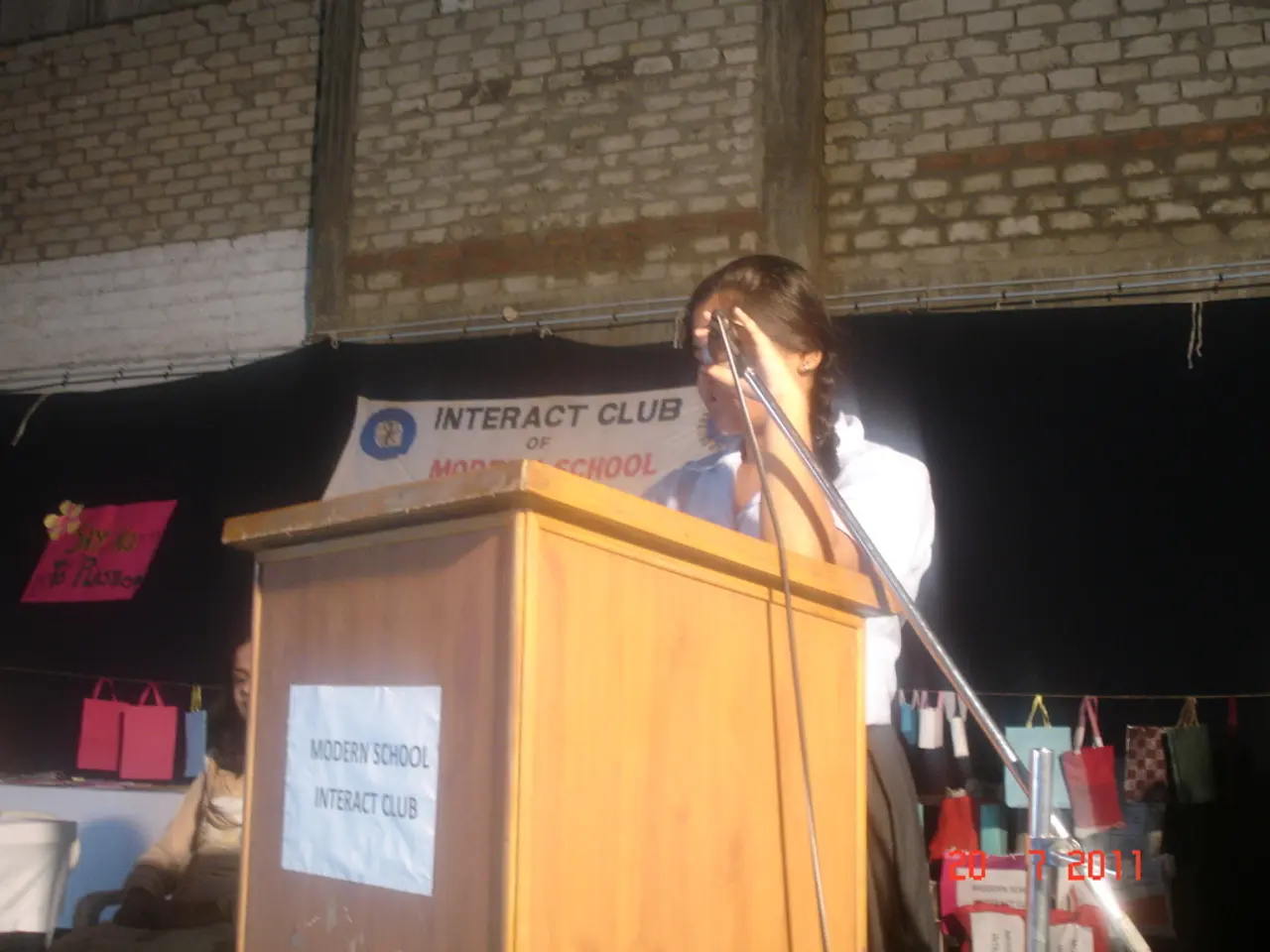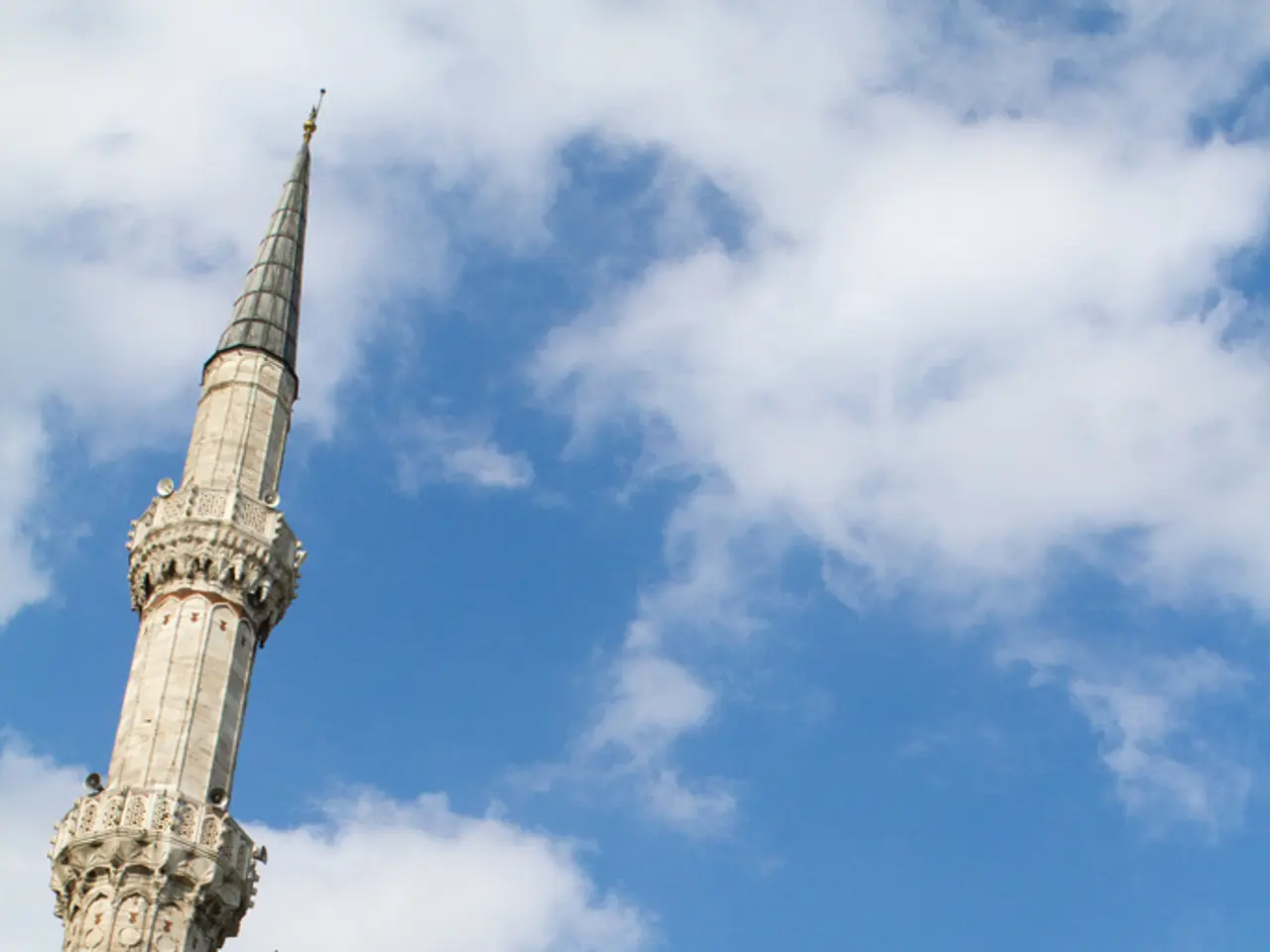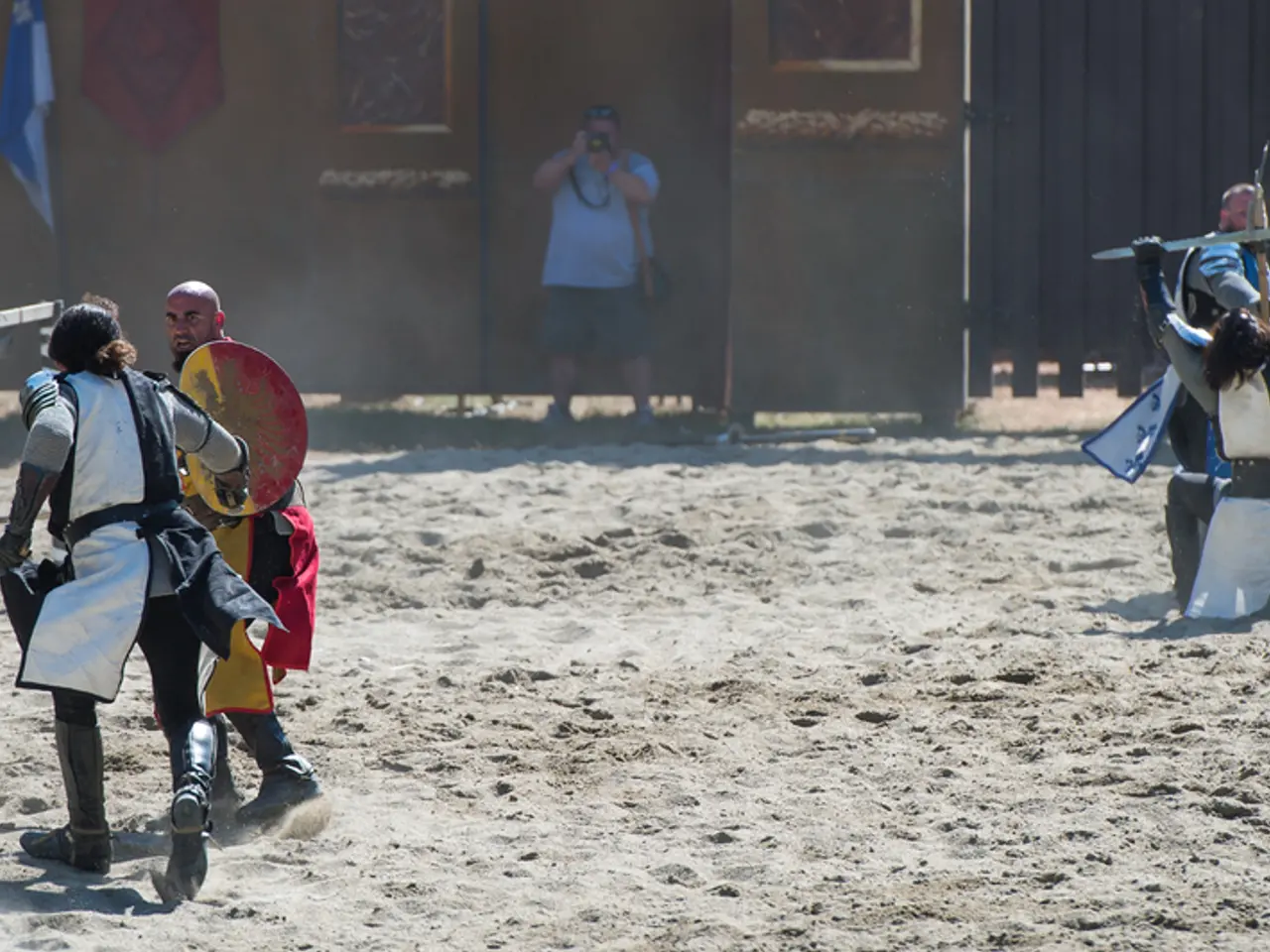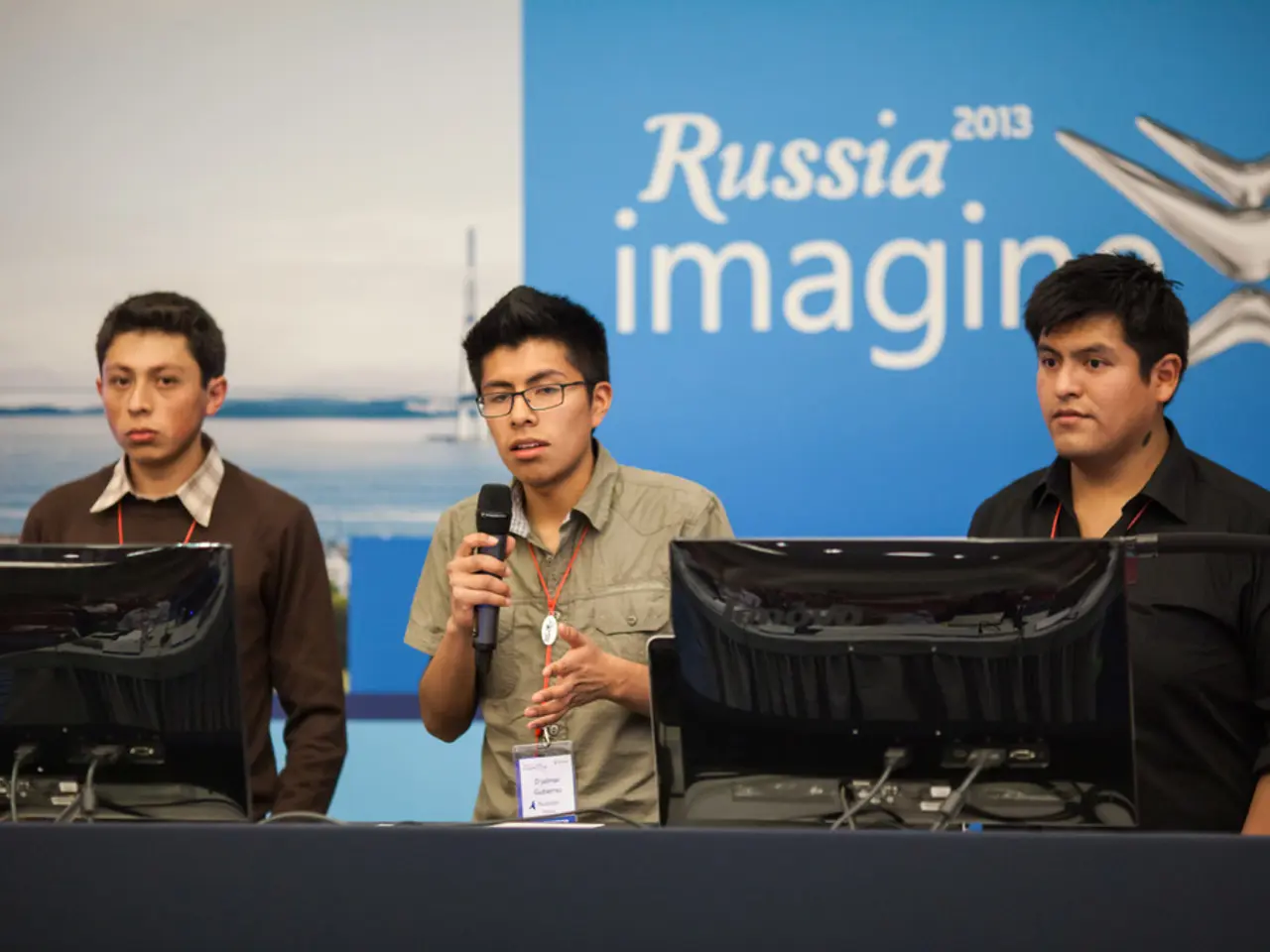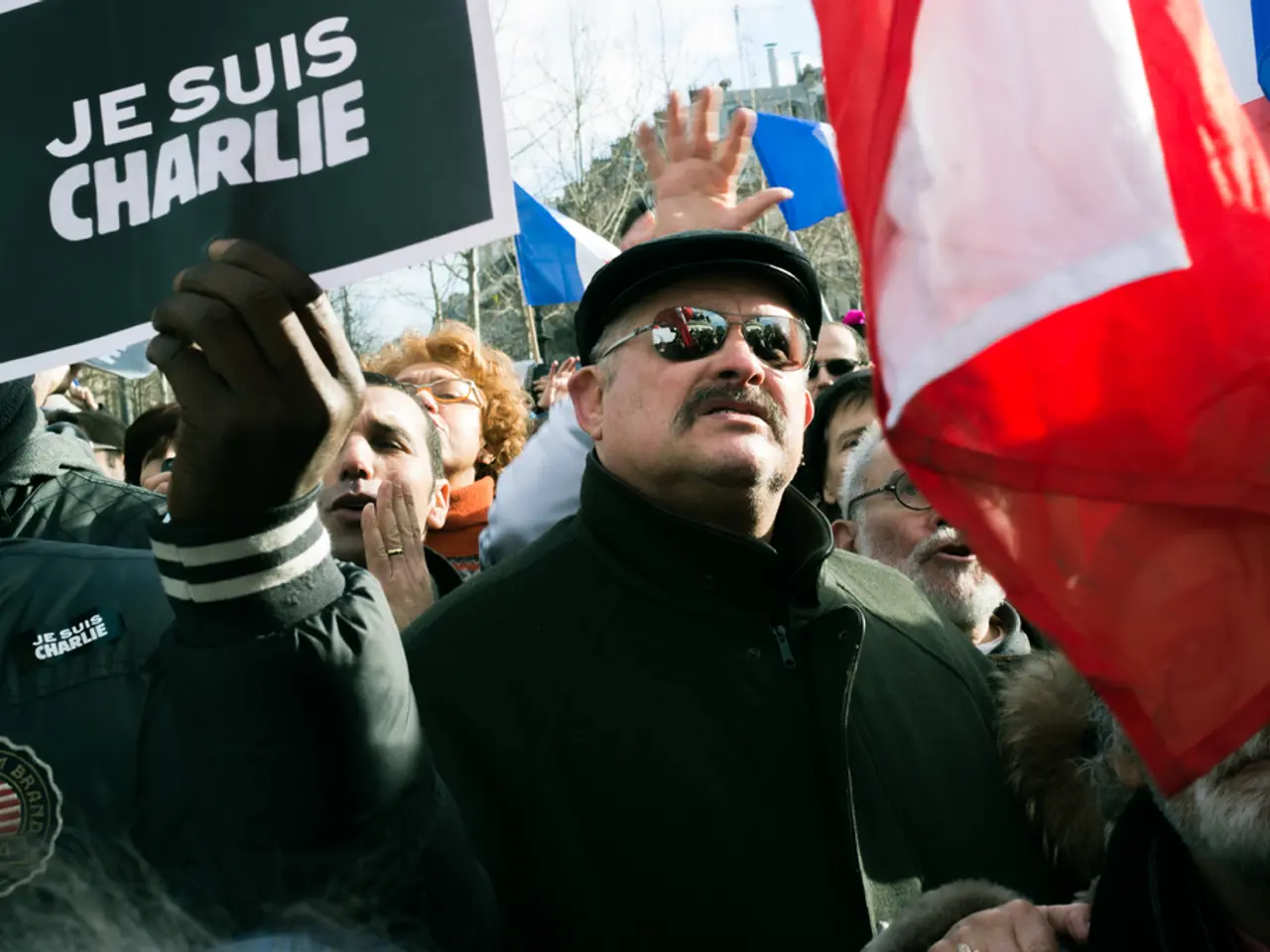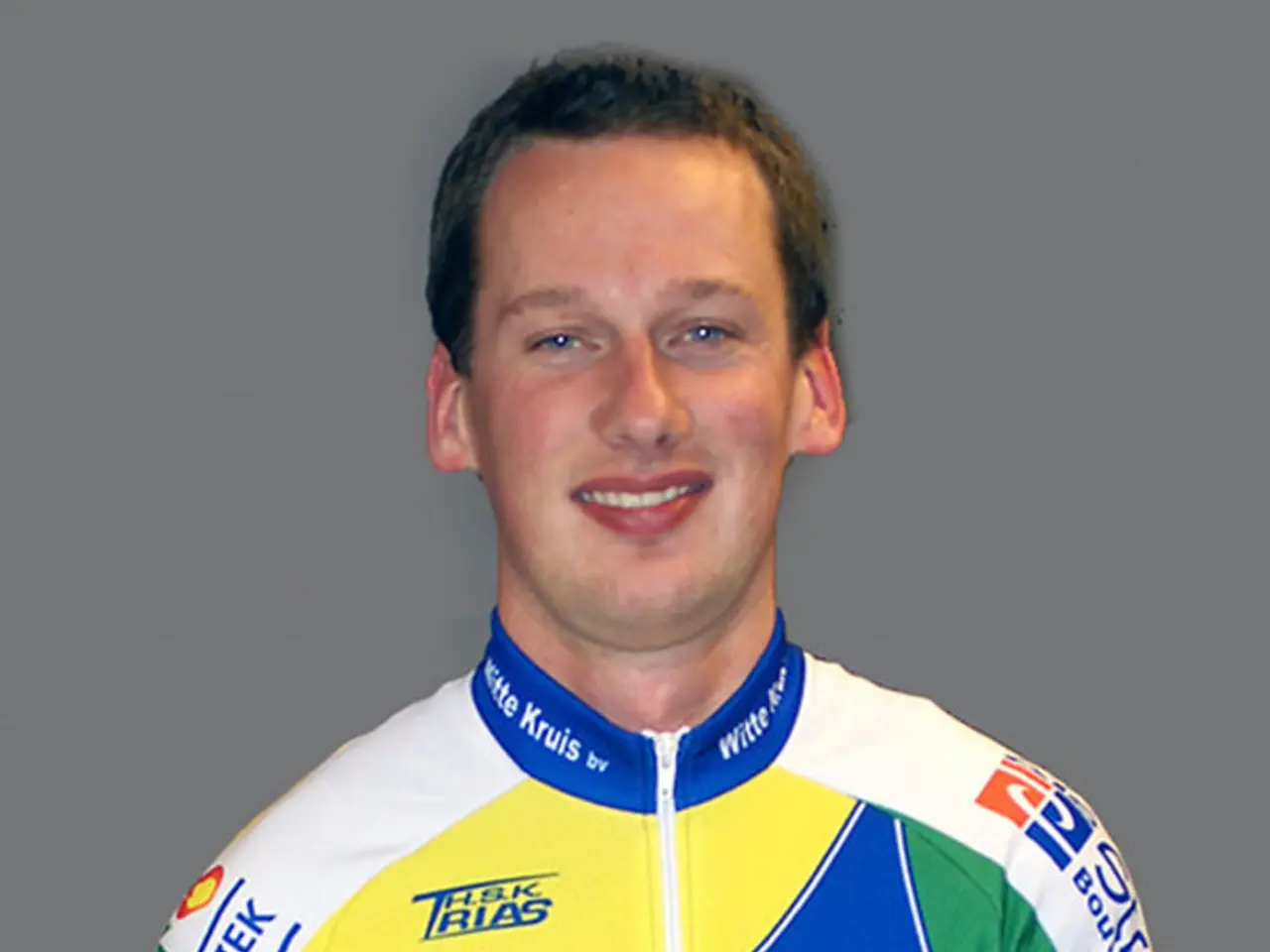S tourists on NATO Summit: Germany, France, and the UK Call for Tougher Russia Sanctions
Three nations - Germany, France, and the UK - advocate for increased economic penalties against Russia.
Get ready for some serious ripple effects in the world of politics as Germany, France, and the UK join forces at the NATO summit, demanding heavier economic pressure on ole Mother Russia in regard to the ongoing Ukraine war. This union, alongside the US, aims to deliver a mighty blow to Putin's wallet, specifically crushing his energy export revenues.
The E3 gang – Germany, France, and the UK – held a meeting in The Hague, as reported by German government circles, where they fortified their stance for more sanctions on Russia. Alas, good ol' Donald Trump ain't exactly onboard yet, keeping us on the edge of our seats.
While the pressure's mounting on Russia, our dynamic trio isn't just basking in their tough-guy antics. They've also agreed to work together on stabilizing the ceasefire between Iran and Israel and pushing for a cessation of hostilities in Gaza. Sounds like they're spreading peace and justice around like wildfire!
Now, let me fill you in on the nitty-gritty of things. The European Union, that's us Europeans, has been attempting to hammer out a new sanctions package focused on squeezing Russia's economy dry, particularly by capping the price of crude oil exports. One proposed measure? Cutting that cap from $60 to a bone-rattling $45 per barrel. But hold on – this plan ain't smooth sailing. It's running into resistances ahead of EU leaders' discussions, and the US, mates, hasn't exactly jumped on the bandwagon.
The German and French governments are pretty much on the same page regarding economic measures to restrict Russia's energy revenue streams, but the specifics of the sanctions and their extent are still under discussion, influenced by factors like allied consensus, global energy prices, and economic considerations. The UK, though no detailed new sanctions package has been shared, is busily coordinating with EU and NATO allies in a united front against Russia.
But let's not forget, the NATO Summit's not just about turning up the heat on Russia. The initial discussion drafts are steering clear of calling Russia an "aggressor" in Ukraine and instead focusing on defense spending increases to counter Moscow's military threats. The US, true to form, is pushing for member states to boost defense spending up to 5% of GDP – some might say a bit ambitious, but we Europeans are game!
Along with sanctions, NATO countries, including our E3 friends, are gearing up to ward off nasty hybrid threats such as cyberattacks, infrastructure sabotage, weaponized migration, and disinformation campaigns. Expect a whole bunch of countermeasures to keep popping up as we get closer to the summit and if it deepens military aid commitments to Ukraine.
In conclusion, while Germany, France, and the UK are sticking to their guns when it comes to sanctions and pressuring Russia, this year's NATO Summit reflects some tricky political maneuvers within the alliance, with the US positions and global energy concerns complicating matters. Rest assured, though, that our fearless leaders are working tirelessly to keep the peace – and the heat – in check.
Sources: ntv.de, dpa
References:[1] European Council: NATO Makes No New Sanctions Announcements but Emphasizes Defense Spending Increases[2] Radio Free Europe/Radio Liberty: NATO Prepares for Hybrid Threats from Russia Ahead of Summit[3] Reuters: EU's Ukraine Sanctions Review: Tougher Restrictions Face Obstacles Ahead[4] Le Monde: Macron et les chefs d'état des pays de l'OTAN se forment pour la réunion à The Hague[5] Financial Times: NATO agrees defence spending hikes at summit but stops short of US ambition
The European Union, primarily Germany, France, and the UK, are working on a new sanctions package intended to severely impact Russia's economy, especially its energy export revenues, as part of the ongoing efforts to counter Russia's actions in Ukraine. Moreover, apart from the focus on war-and-conflicts, the European community and its political leaders are also addressing general news issues, such as issues of peace and justice, evident in their efforts to stabilize ceasefires between Iran and Israel, and Gaza.
